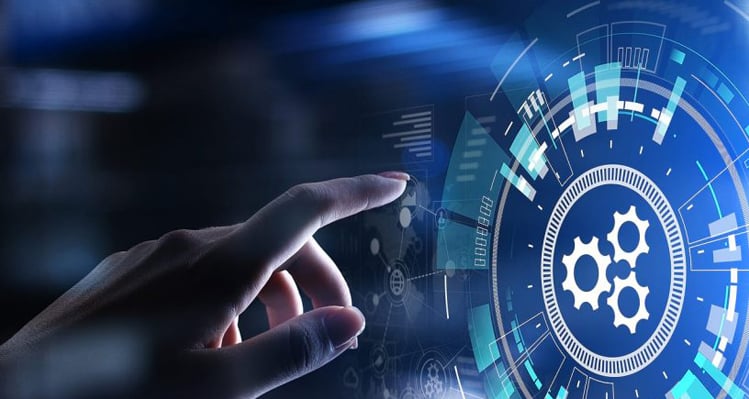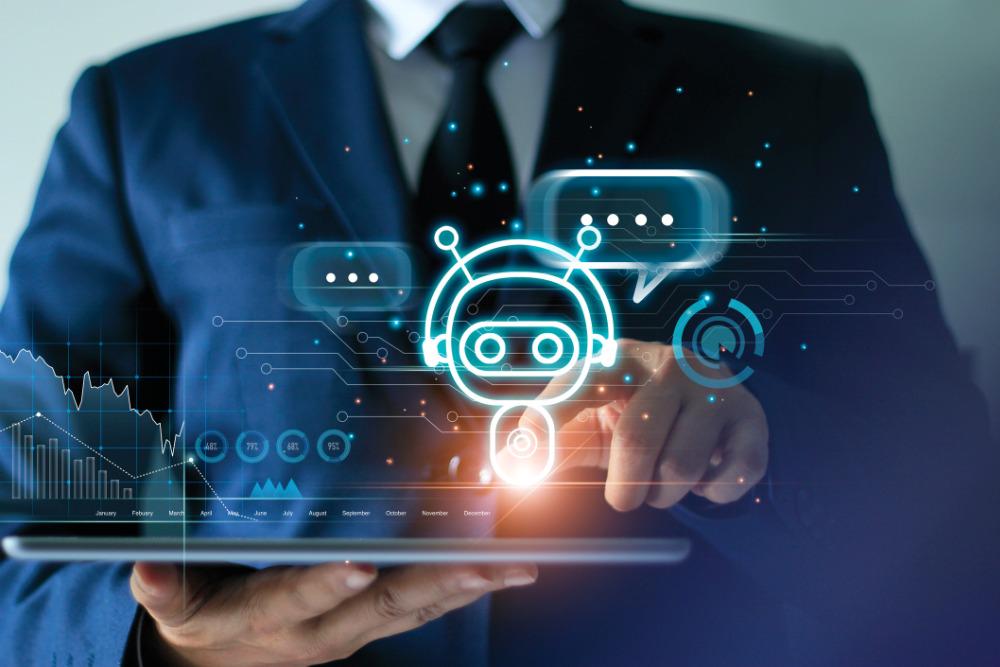In Part I, we discussed the difference between automation and AI, their impact on jobs, and the importance of AI-powered marketing automation. In this part, we will discuss AI applications in marketing automation and the steps of implementation and answer some frequently asked questions.
AI Marketing Automation Applications
AI has revolutionized how marketers handle their campaigns by providing valuable insights, reducing manual work, and improving client interactions. AI and automation allow marketers to analyze client data more effectively, develop insights, and deliver personalized marketing experiences that suit consumers. By automating repetitive tasks, marketers can devote more time to high-value activities like creating content that their target audience will read, cultivating and sustaining customer relationships, and boosting sales.
Moreover, AI and automation can help marketers become more productive and efficient. They can use machine learning algorithms to analyze vast amounts of client data, identify patterns, and extract insights that can benefit marketing strategies. This can help them identify high-value client segments, optimize marketing campaigns, and achieve better business results.
Furthermore, AI and automation can help marketers deliver highly personalized experiences to their clients. By employing predictive analytics and direct data analysis, they can determine client requirements and preferences and customize their messaging and product offerings accordingly, increasing client engagement, loyalty, and revenue.
Let’s delve into some use cases of AI in marketing automation:
1. Personalizing Marketing Campaigns Using AI
AI algorithms can provide content recommendations and offers likely to resonate with each client by analyzing individual clients' related data. This personalization level can increase engagement rates and client loyalty. Studies indicate that personalized campaigns can result in a 26% increase in email open rates and a 41% increase in click-through rates.
2. Automating Lead Scoring and Nurturing
Lead scoring and nurturing are time-consuming. However, AI can automate the process by analyzing potential client-related data to identify those most likely to convert. This can help companies save time and resources while improving the quality of their leads. Automating nurturing also increases conversion rates, as leads are effectively guided through the sales funnel until they are ready to buy.

3. Client Behavior and Trends Predictive Analytics
Predictive analytics using AI can help marketers anticipate client behavior and trends before they occur. AI algorithms can predict future behaviors by analyzing past client behavior data, allowing marketers to adjust their strategies accordingly. For example, companies can use predictive analytics to determine the best time to launch a new product or service based on historical data.
4. Optimizing Marketing Channels Using AI
AI algorithms can identify the most effective channels and allocate resources accordingly by analyzing various marketing channels' performance data. This can lead to more efficient marketing campaigns and better business outcomes. For example, companies can use AI to maximize their advertising budget by targeting the right audiences and determining the best ad placements.
5. Automated Chatbots for Client Service and Engagement
Chatbots are AI-powered tools that can simulate human conversation to provide client service and engage with clients directly. They can handle orders, recommend products, and respond to frequently asked questions. So, chatbots allow companies to reduce reliance on manual labor in client service, leading to significant time and resource savings while allowing client service staff to focus on more complex issues.
Implementing AI Marketing Automation
Before implementing AI-powered marketing automation, you must decide which platforms and tools are best for your particular marketing needs. There are many AI-driven marketing automation tools and platforms, each with advantages and disadvantages. It is important to choose the option that best fits your organization’s unique needs.
1. Creating a Successful Implementation Roadmap
Once you have identified the appropriate tools and platforms, creating a successful implementation roadmap is crucial. This roadmap should include a detailed plan for integrating the technology into your current marketing processes and a plan for training and reskilling your marketing team.
2. Equipping the Marketing Team with AI Automation Training and Skills
You must ensure your marketing team has the necessary skills to implement AI-powered marketing automation successfully. This may involve providing training on how to use the new tools and platforms, as well as reskilling your team to understand the evolving marketing landscape. Here are some key steps to consider when training your marketing team and equipping them with AI automation skills:
Identify Knowledge Gaps
Start by assessing your marketing team’s current skill set and identifying areas where they may lack the expertise needed to work with AI. This might involve conducting a skills audit, evaluating job descriptions, reviewing performance, and soliciting feedback from team members.
Provide Appropriate Training
Once you’ve identified the knowledge gaps, you can provide targeted training to bridge those gaps. This could be webinars, workshops, course access, or bringing in external experts to deliver customized training for your team.
Encourage Hands-On Experience
One of the best ways to learn is through hands-on experience, so it’s important to ensure that your team has chances to practice using the new platforms and tools in a secure setting. This could involve setting up a sandbox environment where your team can experiment with new technology without fear of making mistakes.
Foster a Culture of Continuous Learning
Since AI and marketing automation are ever-evolving, it's critical to establish an environment of continuous learning on your team. Encourage team members to stay updated on the latest trends and technologies and provide opportunities for ongoing training and development.
Hire New Talent
You might need to hire new talent in certain situations to complement your existing team and fill any skill gaps. Seek candidates with experience working with AI and marketing automation who have a proven track record of success in implementing these technologies.
Training your marketing team on AI-driven automation may seem like a daunting task, but it is essential to remain competitive in the modern marketing environment. Therefore, you ensure that your team is equipped with the skills and expertise needed to thrive in an AI-powered marketing world by identifying knowledge gaps, providing appropriate training, fostering a culture of continuous learning, and hiring new talent.
Moreover, it is crucial to consider factors such as cost, user interface, and available features when selecting a platform for discovering influencers. Marketers should also ensure that their chosen platform offers features that align with their campaign goals and audience targeting.

Emerging Trends and Developments in AI-Powered Marketing Automation
Marketing is continuously evolving, with AI at the top of the latest trends and developments. AI-powered marketing automation has become more robust and capable of delivering more personalized client experiences with advancements in natural language processing, computer vision, and predictive analytics. AI is revolutionizing how marketers interact with their audiences through chatbots that can provide instant client support and predictive models that can forecast client behavior.
How Does AI Impact Job Roles and Marketing Future?
Job roles are changing and evolving as AI continues to spread in the marketing field. While some jobs may become automated, new roles are emerging that require skills in AI, data analysis, and machine learning. Marketers must keep up with emerging technologies and be flexible to adapt to new roles and responsibilities. However, the future of marketing is not just about automation and job changes. Marketers will be able to focus more on strategic planning, creative thinking, and driving innovation by leveraging AI and automating routine tasks.
Marketers must be aware of several emerging trends and developments in AI-powered marketing automation. Here are some key areas:
1. Natural Language Processing (NLP)
This is an AI subfield that allows machines to understand and interpret human language. In marketing, NLP can be used to analyze customer feedback, social media comments, and client service interactions to understand sentiments, identify common issues, and enhance the client
2. Computer Vision
This is another AI subfield that enables machines to interpret visual data. In marketing, computer vision can be used to analyze images and videos to identify patterns and insights that can benefit marketing strategies.
3. Predictive Analytics
This involves using AI algorithms to analyze data and predict future behavior. This can help marketers anticipate trends and adjust their strategies accordingly.
4. Interactive Marketing
This involves using AI-powered chatbots to have direct, personalized conversations with clients. This can enhance the client experience and provide valuable insights for marketers.
5. Augmented Reality (AR) and Virtual Reality (VR)
The popularity of these technologies in marketing has increased. Marketers can create personalized and immersive experiences that enhance engagement and boost sales by using AI-driven algorithms to analyze data related to client behavior and preferences,
Overall, these emerging trends and developments in AI-powered marketing automation have the potential to revolutionize how marketing is executed. Furthermore, knowledgeable marketers who embrace these trends will be better positioned to stay ahead of the curve.
Key Points Overview
- Using AI in marketing automation can improve efficiency, increase ROI, and enhance client
- Marketers who do not adopt AI risk falling behind their competitors and missing out on these benefits.
- While AI may impact marketing job roles, new opportunities will also arise for those with the skills and knowledge needed to leverage the latest technologies.
- Calling organizations to adopt AI-powered marketing automation for competitive advantage.
- Embracing AI-driven marketing automation is imperative for organizations seeking to maintain a competitive edge. This means investing in technology, providing training, and offering the necessary resources to empower marketing teams to leverage the latest tools and techniques. Businesses can enhance their marketing effectiveness, improve ROI, and strengthen customer relationships by doing so.

FAQ - Frequently Asked Questions
What Is AI Marketing Automation?
AI marketing automation is a term used to describe applying AI technologies in various marketing-related contexts. This includes using AI-powered algorithms and data analysis techniques to automate tasks such as ad targeting, client segmentation, predictive analytics, interactive marketing, augmented reality, and virtual reality experiences, among many other things.
How Can AI Be Used in Marketing?
AI algorithms can automate a variety of marketing-related tasks that may require manual effort. By optimizing ad targeting and client segmentation, engaging in personalized conversations with clients directly, and predicting client behavior and preferences, marketers can save time, increase efficiency, and make more informed decisions about their marketing strategies.
What Are the AI Marketing Automation Advantages?
Leveraging AI in marketing automation improves efficiency and increases ROI. AI can help marketers optimize their strategies in ways that were previously impossible. Additionally, AI may improve client engagement by providing a more immersive and personalized experience. Also, AI marketing automation offers new opportunities for those with the right skills and knowledge needed to leverage the latest technologies.
What Should Organizations Do to Stay Ahead and Adopt AI Marketing Automation?
Organizations should invest in technology, training, and other necessary resources to empower their marketing teams to leverage AI-driven marketing automation. This means understanding AI-based algorithms and data analysis techniques and being willing to explore new technologies. Businesses should also prioritize learning opportunities for their marketing teams to ensure they have the appropriate skills and knowledge needed to stay at the forefront.
In Conclusion
Applying AI in marketing automation has the potential to revolutionize how marketing is executed. AI can help marketers make more informed decisions and enhance their marketing strategies in ways that were previously impossible by automating repetitive tasks, analyzing data at scale, and providing predictive insights. AI's impact on marketing job roles is significant, but with the right mindset and training, marketers can stay ahead and adopt the latest technologies to gain a competitive edge.











